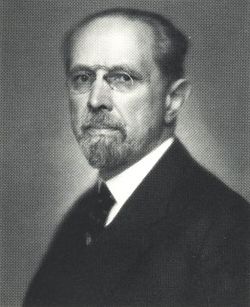by Werner Sombart
(edited & abridged by henrymakow.com)
The intellectuality of the Jew is so strong that it tends to develop at the expense of other mental qualities, and the mind is apt to become one-sided.
The Jew certainly sees remarkably clearly, but he does not see much.
He does not think of his environment as something alive, and that is why he has lost the true conception of life, of its oneness, of its being an organism, a natural growth. In short, he has lost the true conception of the personal side of life. General experience must surely support this view; but if other proofs are demanded they will be found in the peculiarities of Jewish law, which abolished personal relationships and replaced them by impersonal, abstract connections or activities or aims.
Hence the [Jewish] lack of sympathy for every status where the nexus is a personal one. The Jews’ whole being is opposed to all that is usually understood by chivalry, to all sentimentality, knight-errantry, feudalism, patriarchalism. Nor does he comprehend a social order based on relationships such as these. “Estates of the realm” and craft organizations are a loathing to him.
 (Typically the Jew inverts everything. Reacting to Talmudic hate is Christian hate.)
(Typically the Jew inverts everything. Reacting to Talmudic hate is Christian hate.)
The conception of the universe in the mind of such an intellectual people must perforce have been that of a structure well-ordered in accordance with reason. By the aid of reason, therefore, they sought to understand the world; they were rationalists, both in theory and in practice.
Take any expression of the Jewish genius and you will be certain to find in it this teleological tendency, which has sometimes been called extreme subjectivity. Whether or not the Indo-Germanic races are objective and the Semitic subjective, certain it is that t
he Jews are the most subjective of peoples. The Jew never loses himself in the outer world, never sinks in the depth of the cosmos, never soars in the endless realms of thought, but, as Jellinek well puts it, dives below the surface to seek for pearls.
He brings everything into relation with his ego. He is forever asking why what for, what will it bring? Cui bono? His greatest interest is always in the result of a thing, not in the thing itself. It is un-Jewish to regard any activity, be it what you will, as an end in itself; un-Jewish to live your life without having any purpose, to leave all to chance; un-Jewish to get harmless pleasure out of Nature.
The Jew has taken all that is in Nature and made of it “the loose pages of a textbook of ethics which shall advance the higher moral life.” The Jewish religion, as we have already seen, is teleological in its aim; in each of its regulations, it has the ethical norm in view. The entire universe, in the Jew’s eyes, is something that was made in accordance with a plan.
How deeply the teleological view of things is embedded in the nature of the Jew may be seen in the case of those of them who, like the Chassidim, pay no attention to the needs of practical life because “there is no purpose in them.” There is no purpose in making a living, and so they let their wives and children starve, and devote themselves to the study of their sacred books.
When this attitude of mind that seeks for a purpose in all things is united with a strong will, with a large fund of energy (as is generally the case with the Jew), it ceases to be merely a point of view; it becomes a policy. The man sets himself a goal and makes for it, allowing nothing whatever to turn him aside from his course; he is determined, if you like, stiff-necked. Heine in characterizing his people called it stubbornness, and Goethe said that the essence of the Jewish character was energy and the pursuit of direct ends.
 (left, The distinguished German sociologist Werner Sombart, 1863-1941,
(left, The distinguished German sociologist Werner Sombart, 1863-1941,
 (Typically the Jew inverts everything. Reacting to Talmudic hate is Christian hate.)
(Typically the Jew inverts everything. Reacting to Talmudic hate is Christian hate.) RSS Feed
RSS Feed















 April 3rd, 2018
April 3rd, 2018  Awake Goy
Awake Goy  Posted in
Posted in  Tags:
Tags: 













